
That the Games Start! - Olympic Games
First published: Friday July 23rd, 2021
Report this blog
Ah... the Olympics. What to say? The most important sports competition of the world. Uniting the countries for dispute dozens of sports. Trying to search the medal, but also extending the country flag. The Olympic Games are union, emotion, vibration... We’ll see the history of the Olympic Games, the Paralympic Games, that prove that a deficiency isn’t document for sports, the Winter Games, where Winter sports happen, all about this edition on Tokyo, and some curiosities about this competition who makes the world stop in front of the TV.
History
The creation of the Olympics was inspired by the ancient Olympic Games. They were religious and athletic festivals held every four years at the sanctuary of Zeus in Olympia, Greece. Competition was among representatives of several city-states and kingdoms of Ancient Greece, where the winners used to receive crowns of gold or olive-tree leaf. These Games featured mainly athletic but also combat sports such as wrestling and the pankration, horse and chariot racing events. It has been widely written that during the Games, all conflicts among the participating city-states were postponed until the Games were finished. This cessation of hostilities was known as the Olympic peace or truce. The most widely accepted inception date for the Ancient Olympics is 776 BC. The Ancient Games featured running events, a pentathlon (consisting of a jumping event, discus and javelin throws, a foot race, and wrestling), boxing, wrestling, pankration, and equestrian events. Tradition has it that Coroebus, a cook from the city of Elis, was the first Olympic champion.
The Games were held every four years, and this period, known as an Olympiad, was used by Greeks as one of their units of time measurement. The Olympic Games reached the height of their success in the 6th and 5th centuries BC, but then gradually declined in importance as the Romans gained power and influence in Greece. While there is no scholarly consensus as to when the Games officially ended, the most commonly held date is 393 AD, when the emperor Theodosius I decreed that all pagan cults and practices be eliminated. Another date commonly cited is 426 AD, when his successor, Theodosius II, ordered the destruction of all Greek temples.
Many minor events in some countries, after the first Olympics were documented since the 17th century. Greek interest in reviving the Olympic Games began with the Greek War of Independence from the Ottoman Empire in 1821. It was first proposed by poet and newspaper editor Panagiotis Soutsos in his poem "Dialogue of the Dead", published in 1833. Evangelos Zappas, a wealthy Greek-Romanian philanthropist, first wrote to King Otto of Greece, in 1856, offering to fund a permanent revival of the Olympic Games. Zappas sponsored the first Olympic Games in 1859, which was held in an Athens city square. Athletes participated from Greece and the Ottoman Empire. Zappas funded the restoration of the ancient Panathenaic Stadium so that it could host all future Olympic Games.
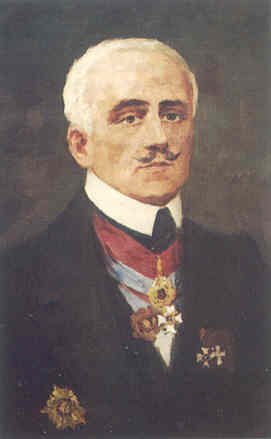
In 1890, after attending the Olympian Games of the Wenlock Olympian Society, Baron Pierre de Coubertin was inspired to found the International Olympic Committee (IOC). Coubertin built on the ideas, the aim of establishing internationally rotating Olympic Games that would occur every four years, as in the Ancient Games. He presented these ideas during the first Olympic Congress of the newly created International Olympic Committee. On the last day of the Congress, it was decided that the first Olympic Games to come under the auspices of the IOC would take place in Athens in 1896.
The first Games held under the auspices of the IOC was hosted in the Panathenaic Stadium in Athens in 1896. The Games brought together 14 nations and 241 athletes who competed in 43 events. Greek officials and the public were enthusiastic about the experience of hosting an Olympic Games. This feeling was shared by many of the athletes, who even demanded that Athens be the permanent Olympic host city. The IOC intended for subsequent Games to be rotated to various host cities around the world, with the second Olympic Games being tooking place in Paris. After the success of the 1896 Games, the Olympics entered a period of stagnation which threatened its survival. The Olympic Games of Paris 1900 and St. Louis 1904 failed to attract much participation or notice. The Games rebounded with the 1906 Intercalated Games (so-called because they were the second Olympics to take place within the third Olympiad), which were held in Athens. These Games attracted a broad international field of participants and generated a great deal of public interest, marking the beginning of a rise in both the popularity and the size of the Olympics. The 1906 Games were officially recognised by the IOC at the time (although not any longer), and no Intercalated Games have been held since.
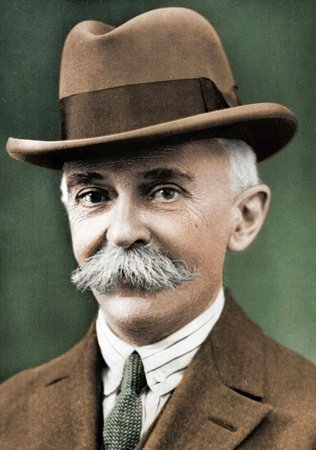
These are all the Modern Olympic Games that already happened, and the future ones, including the very recent election of Brisbane Games in 2032. The canceled Olympic Games are with strikethrough, Tokyo 2020 is on bold, and the future future Olympic Games (excepting Tokyo 2020) are marked in italics.
- 🇬🇷 Athens 1896
- 🇫🇷 Paris 1900
- 🇺🇸 St. Louis 1904
- 🇬🇷 Athens 1906*
- 🇬🇧 London 1908
- 🇸🇪 Stockholm 1912
🇩🇪 Berlin 1916(canceled due to WWI)- 🇧🇪 Antwerp 1920
- 🇫🇷 Paris 1924
- 🇳🇱 Amsterdam 1928
- 🇺🇸 Los Angeles 1932
- 🇩🇪 Berlin 1936
🇫🇮 Helsinki 1940**(canceled due to WWII)🇬🇧 London 1944(canceled due to WWII)- 🇬🇧 London 1948
- 🇫🇮 Helsinki 1952
- 🇦🇺 Melbourne 1956
- 🇮🇹 Rome 1960
- 🇯🇵 Tokyo 1964
- 🇲🇽 Mexico City 1968
- 🇩🇪 Munich 1972
- 🇨🇦 Montreal 1976
- 🇷🇺 Moscow 1980
- 🇺🇸 Los Angeles 1984
- 🇰🇷 Seoul 1988
- 🇪🇸 Barcelona 1992
- 🇺🇸 Atlanta 1996
- 🇦🇺 Sydney 2000
- 🇬🇷 Athens 2004
- 🇨🇳 Beijing 2008
- 🇬🇧 London 2012
- 🇧🇷 Rio de Janeiro 2016
- 🇯🇵 Tokyo 2020 (postponed to 2021 due to COVID-19 Pandemics)
- 🇫🇷 Paris 2024
- 🇺🇸 Los Angeles 2028
- 🇦🇺 Brisbane 2032
*Not recognized by IOC.
**The 1940 Games were supposed to happen in Tokyo, but after the invasion of the Chinese in the Second Sino-Japanese War, the IOC decided to change the Games to Helsinki. Finally, they were canceled with the WWII.
Tokyo 2020 Olympic Games
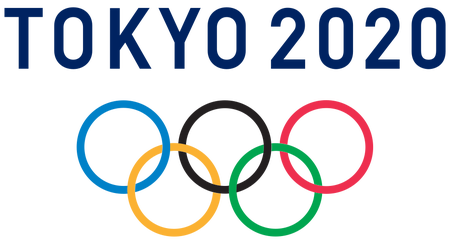
The 2020 Summer Olympics, officially known as the XXXII Olympiad Games, most commonly Tokyo 2020, will be a multi-sport event held during the summer of 2021 in the Tokyo metropolitan region, Japan. The choice of venue was made during the 125th Session of the International Olympic Committee, which took place in Buenos Aires, Argentina, on September 7, 2013.
The Tokyo metropolitan region hosted the 1964 Summer Olympics. In addition, this will be the fourth edition of the Games to be held in Japan. Along with the 1964 Summer Games, Japan has twice hosted the Winter Olympic Games. The first time was Sapporo 1972 and the second time was Nagano 1998.
The Games were scheduled to run from the 24th of July to the 9th of August 2020, with the first events scheduled to start on the 22nd of July. However, on March 24, 2020, the games were pushed back to the summer of 2021, as one of the main effects of the COVID-19 pandemic. This postponement also affected the dates of the Paralympic Games, which were also postponed to the summer of 2021 (this will be the first time in history that an Olympic event has been postponed and which will also take place in an odd year, ie outside the Olympic cycle). But even with the postponement, the Games will have its name and brand maintained. On March 30, 2020, the new dates were set: July 23 to August 8, 2021.
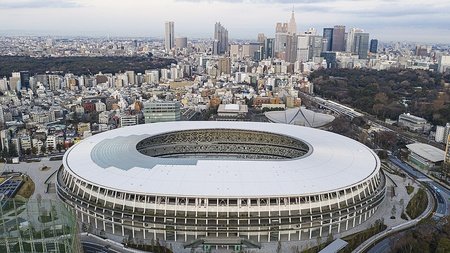
46 modalities with 33 sports will be disputed on Tokyo Games. 5 modalities of them, are newcomers, which are marked in bold. Here are the list of them.
- Aquatics (Artistic Swimming/Diving/Marathon Swimming/Swimming/Marathon Polo)
- Archery
- Athletics
- Badminton
- Baseball (Baseball/Softball)
- Basketball (Basketball/3x3 basketball)
- Boxing
- Canoeing (Slalom/Sprint)
- Cycling (BMX freestyle/BMX racing/Mountain biking/Road cycling/Track cycling)
- Equestrian (Dressage/Eventing/Jumping)
- Fencing
- Field Hockey
- Football
- Golf
- Gymnastics (Artistic/Rhythmic/Trampoline)
- Handball
- Judo
- Karate (Kata/Kumite)
- Modern Pentathlon
- Rowing
- Rugby sevens
- Sailing
- Shooting
- Skateboarding
- Sport Climbing
- Surfing
- Table tennis
- Taekwondo
- Tennis
- Triathlon
- Volleyball (Volleyball/Beach volleyball)
- Weightlifting
- Wrestling (Freestyle/Greco-roman)
The IOC called the election to select the tournament's host city on September 7, 2013, during the 125th Session of the International Olympic Committee in Buenos Aires, Argentina. No city achieved an absolute majority of votes in the first round, ending with Tokyo in first place, reaching 45% of the valid votes, and Madrid and Istanbul tied for second place with 27.5% of the valid votes each. In the tiebreak, Istanbul won with 52% of the valid votes, moving to the second round with Tokyo. In the final vote, Tokyo was selected with 60 votes in favor, accounting for 62% of the votes, while Istanbul got 36 votes.


The Paralympic Games
The Paralympic Games or is the world's largest sporting event involving people with disabilities. They include athletes with physical disabilities (of mobility, amputations, blindness or cerebral palsy), as well as intellectually disabled. First held in 1960 in Rome, Italy, they have their origins in Stoke Mandeville, England, where the first sports competitions for the physically handicapped took place, as a way to rehabilitate soldiers injured in World War II.
27 modalities make up the Paralympic Games programme, twenty-seven of which have already been played and two will debut in the 2020 edition of the Games. In addition to adapted sports, such as athletics, swimming, basketball, table tennis, alpine skiing and curling, there are sports played exclusively by the disabled, such as bocce, goalball and blind soccer.
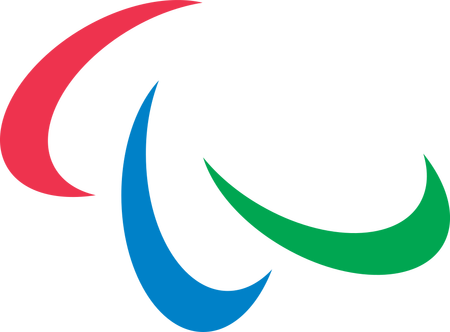
In 2001, the International Olympic Committee (IOC) and the International Paralympic Committee (IPC) signed an agreement that ensures that host cities manage both the Olympic and Paralympic Games. This agreement has been renewed several times and currently remains in effect until the 2032 Summer Paralympic Games. There is also a version of Paralympics to the Winter Games.
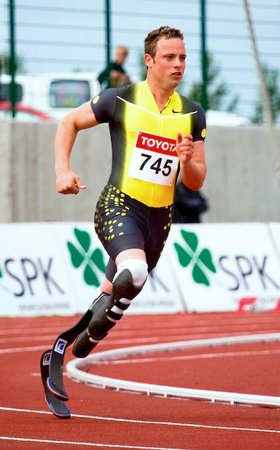
Winter Olympic Games
Winter Olympic Games are a multi-sport event held every four years, bringing together winter sports modalities played on ice and snow (like ice hockey, curling, snowboard, and figure skating), being one of the top events of the Olympic Movement, alongside the Summer Olympic Games.
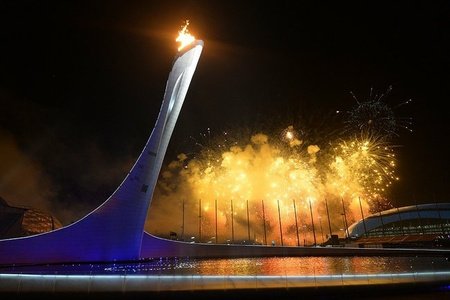
The first competition of a worldwide character to bring together winter sports was the International Winter Sports Week, held in 1924 in the French town of Chamonix. Just two years later, the International Olympic Committee (IOC) decided to give the status of Olympic Games to that competition, which would take place regularly.
In the beginning, the Summer and Winter Games were assigned to the same country to be held in the same year. This was the case until the fourth edition, in Germany, in 1936 (the year in which Berlin hosted the Summer Games and Garmisch-Partenkirchen hosted the Winter Games). After two editions canceled because of World War II (Sapporo 1940 and Cortina d'Ampezzo 1944), the Games started to be held by different countries, but continued to take place in the same year. In 1986, the IOC decided to alternate the Summer and Winter Games, always held in even years. Thus, the 1992 Albertville Games were succeeded by the 1994 Lillehammer Games.
This is the list of all the cities that held the Winter Games. In italics the future games, and in strikethrough, the canceled ones.
- 🇫🇷 Chamonix 1924
- 🇨🇭 St. Moritz 1928
- 🇺🇸 Lake Placid 1932
- 🇩🇪 Garmisch-Partenkirchen 1936
🇩🇪 Garmisch-Partenkirchen 1940*(canceled due to WWII)🇮🇹 Cortina d’Ampezzo 1944(canceled due to WWII)- 🇨🇭 St. Moritz 1948
- 🇳🇴 Oslo 1952
- 🇮🇹 Cortina d’Ampezzo 1956
- 🇺🇸 Squaw Valley 1960
- 🇦🇹 Innsbruck 1964
- 🇫🇷 Grenoble 1968
- 🇯🇵 Sapporo 1972
- 🇦🇹 Innsbruck 1976
- 🇺🇸 Lake Placid 1980
- 🇧🇦 Sarajevo 1984
- 🇨🇦 Calgary 1988
- 🇫🇷 Albertville 1992
- 🇳🇴 Lillehammer 1994
- 🇯🇵 Nagano 1988
- 🇺🇸 Salt Lake City 2002
- 🇮🇹 Turin 2006
- 🇨🇦 Vancouver 2010
- 🇷🇺 Sochi 2014
- 🇰🇷 Pyeongchang 2018
- 🇨🇳 Beijing 2022
- 🇮🇹 Milan-Cortina d’Ampezzo 2026
*Originally, the 1940 Games would happen in Sapporo. With the Sino-Japanese War, they were passed to St. Moritz. Three months after dispute of IOC and the Organizer Comittee made that the Games were passed to Garmisch-Partenkirchen, and finally, with the Invasion of Poland on World War II, both Summer and Winter Games were canceled.
Curiosities
- The official languages of the Olympic Games are the English and French, more, the language of the country that held the Games.
- During the 1936 Games in Berlin, two Japanese polo-vaulters tied for second place. Instead of competing for the medal again, they cut the silver and bronze medals in half and fused the two different halves so that they each had half-silver and half-bronze.
- Only in London 2012 were the first Olympic Games in which all countries sent women athletes.
- The five rings of the Olympic symbol – designed by Baron Pierre de Coubertin, co-founder of the modern Olympic Games – represent the five inhabited continents of the world. The six colors – blue, yellow, black, green, red and white background – were chosen because each nation's flag contains at least one of them.
- The first official mascot was Waldi the dachshund at the 1972 Games in Munich.
- Talking about Munich, one of, if not the saddest moment of all the Olympics, was when on September 5, eleven members of Israel's Olympic team were taken hostage by the Palestinian terrorist group Black September Organization, making it the biggest terrorist attack ever to take place at a sporting event.
- In another sad moment, on Seoul 1988, at the party that marked the beginning of the Olympics held in Seoul, South Korea, white doves were released, symbolizing peace and repeating an Olympic custom that dates back to the beginning of the competition in the Modern Era. But the birds ended up landing on the Olympic pyre, and when the fire spread, most of the doves burned to death. After that, this tradition symbolizing the peace, was banned.
- The commemorative photo biting the medal is basically protocol for the winners, but do you know the origin of the tradition? It comes from the Middle Ages, when merchants bit coins to check the origin of the material. If the coin were made of lead, the bite would leave teeth marks, something that does not happen with gold coins.
- The gold medals are made of silver, and just are covered of gold.
- Walking around with a broken sneaker or a blown slipper for a few minutes on the street is a great nuisance for us mere mortals. For Abebe Bikila, however, this is a piece of cake. At the 1960 Olympics, the Ethiopian chose to run 42km without the aid of tennis and not only completed the marathon, he also won it. The victory was an enormous testament to Bikila's willpower and resilience, who became the first African to win gold in the history of the Games.
That’s the Olympics. Magic and peace, uniting the countries in an only feeling. The Olympic Games could happen every year. They dodge all our attentions. Isn’t just a medal, but a fire in our hearts, called happiness. That the Games start!

I didn't mention this in my blog about Indian cities, but Ahmedabad applied to host 2032.
Poor Helsinki still never got to host the olympicsAlso, I saw on Wikipedia. Some cities tried, but basically only Brisbane got candidate.
And Berlin and London? Sad...1. Brazil will try the most for boycott the candidacy. Imagine: a city out of the Rio-São Paulo Axis, that is not the capital Brasília! No. Impossible.
2. And the canoeing, rowing and sailing? The option, is do in Pampulha Lake. Now, tell me how, if you have a dam in the lake and it is polluted?
3. There isn’t space. You can in the maximum search for the other cities of the BH metropolitan region, but if (example) you have just soccer matches in BH, in a stadium like Mineirão, Independência, or MRV Arena (still building), aren’t the Games of Belo Horizonte. Ok, you can send some games for near cities, but you’re trying to be the host because you think your city is prepared. If not...
Luck for India next time. But is there a city that can send a bid and don’t have too much trouble?
like the end of the worldsimilar to what happened this time.Great Blog as always MG! #Let the Games Start
And I that said for the Games start! I was costumed as Naruhito, in case that someone kidnap me, because, stupidly, almost no one know about the Blog Emperor! :)
and lost an hour of sleepand it was AWESOME!!!!!!!!!!!!!!!!!!!!!!!!!!(Sorry, I was very surprised, then, I wrote in Portuguese lol)
I mean, WHAT!? Write a letter to Matt Carroll for he have a sense of decency lol, you can’t live without watch a single Olympic Game!